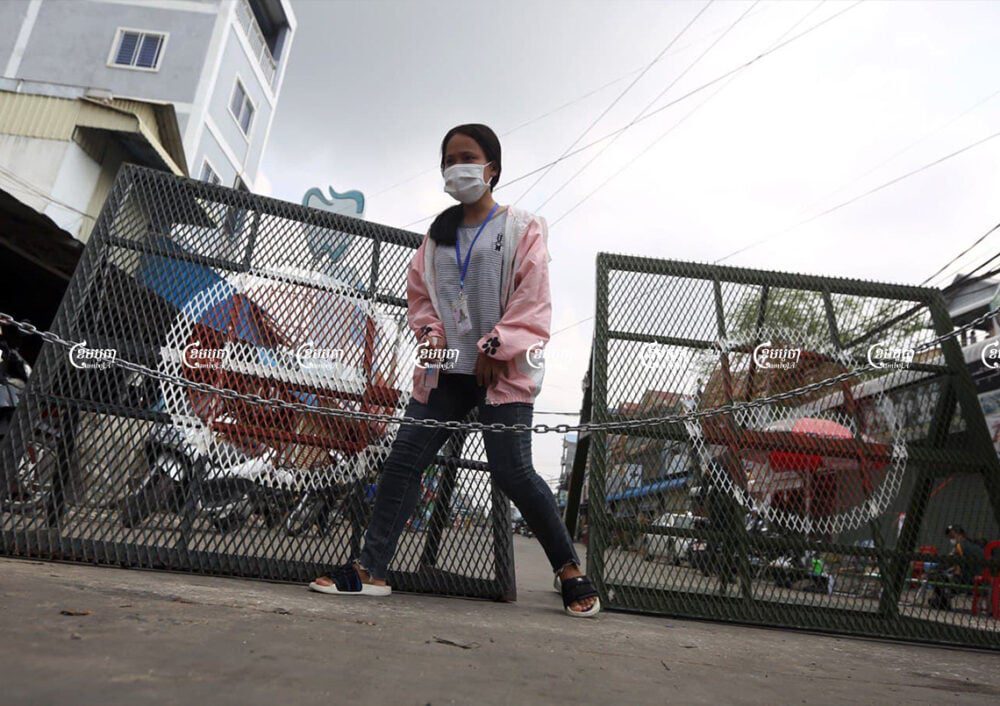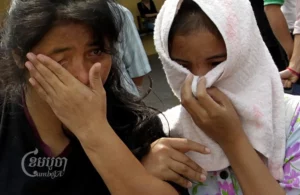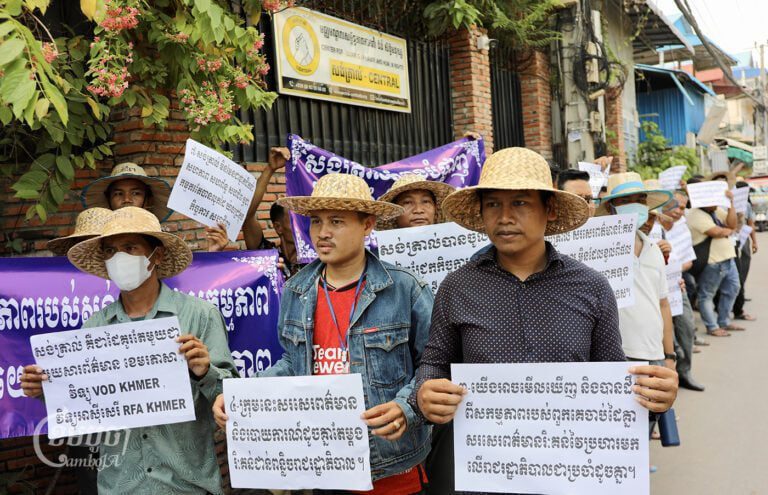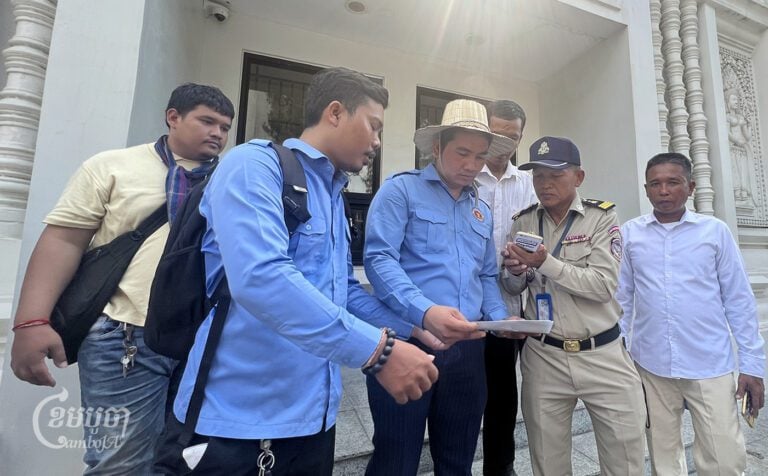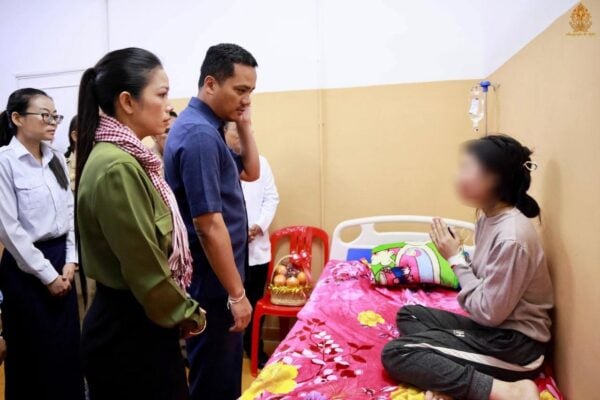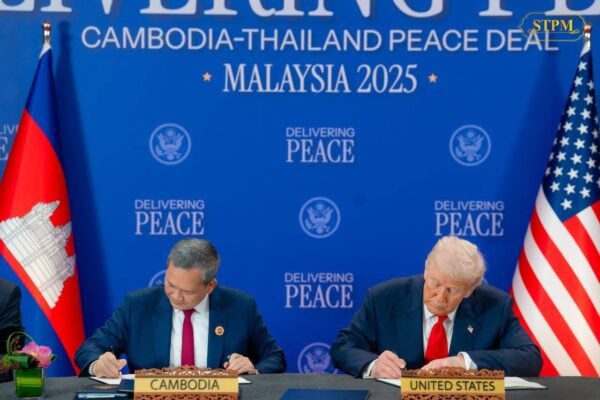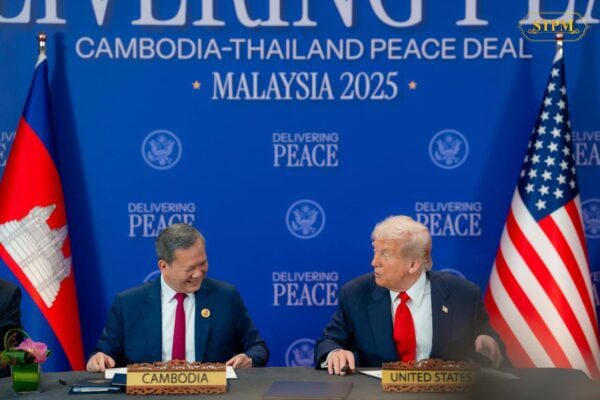Cambodian garment workers lost an estimated $109 million in wages during the pandemic lockdowns in April and May, according to calculations by Cambodian trade unions and the Clean Clothes Campaign.
Zurich-based labor rights group Public Eye termed the losses “wage theft” noting in a statement that some of the biggest brands continued to pull in hundreds of millions of dollars in profit even as workers were deprived of pay.
“Unions and activists call on international brands to pay workers’ full wages throughout the duration of the pandemic and sign an enforceable agreement to prevent future pay theft,” Public Eye said.
The union groups made their calculation based on projections from measuring losses among workers at 114 factories. “Combined with outstanding wages and severance pay from the first 13 months of the pandemic, the total amount owed to garment workers in Cambodia is estimated to be a total of $393 million,” said the statement.
While the report highlights Cambodia’s biggest brands, including VF, Target, Nike and Gap, it noted that Adidas is “linked to the largest wage theft in the factory sample: the losses inflicted on 30,190 workers across eight Adidas supplier factories since the beginning of the pandemic adds up to $11.7 million, or $387 per worker.” During the first quarter of 2021, Adidas earned $650 million in profits, said the report.
“Other brands linked to the largest amounts of wage theft in the sample are VF Corporation (US$ 7.7 m), Target (US$ 7.6 m), Nike (US$ 7.5), and Gap (US$ 6.7 m). In comparison, the ten companies most frequently linked with suppliers in the wage-theft sample had a combined total of more than US$ 4.7 billion in net earnings from the first quarter of 2021 alone,” noted the statement.
In response, “several brands have played down their individual responsibility to ensure proper payment to all workers in their supply chain…”
Pav Sina, president of Collective Union of Movement of Workers (CUMW), said factories had set aside no budget to pay workers during pandemic-related factory closures. Brands had not given them any extra funds to do so.
“Factories do not pay any money to workers while they were suspended or they were locked down for the COVID-19 pandemic, so workers lost their income,” Sina said.
Sina said that throughout the pandemic many unions in Cambodia have requested factory owners and brands to provide some money to support workers impacted by the pandemic.
“We have been having a universal campaign to ask buyer companies to release some budget to lessen the impact on workers during COVID-19 pandemic because in the past, some factories were closed but the factories did not pay workers,” he said. “If they do not [supply funds], it means that they do not think about the workers’ impact but they think only about their income.”
Khun Tharo, a program coordinator at labor rights group CENTRAL, echoed Sina’s call, saying brands should do more to ensure factories are following labor guidelines and should set aside funds to pay those who aren’t allowed to work during pandemic lockdowns.
“They have to consider subsidizing wages to workers who are facing job suspensions during lockdown,” Tharo said. “They must work to support their suppliers to establish social support assistance to workers that make their products during this period.”
He stressed that the government should prioritize health and safety first for workers, and continue lockdowns when needed.
“The government should consider having the factory suspend its operation for at least for two weeks [when an outbreak occurs] to prevent the transmission from one workplace to another workplaces and they should make sure workers get their full wages during the suspension period,” said Tharo.
Heng Sour, Labor Ministry’s spokesman said in a message that he didn’t have any direct comments on the report but noted that even if workers lose pay in a lockdown it’s better than losing their job.
“Globally in 2020, we see the rise of unemployment and the decline of income. Anyway, among the worst, being able to keep a job is better than unemployment,” he said.
Nguon Channara, deputy secretary general of Cambodia Footwear Association , said he wasn’t familiar with the survey but noted that all parties have faced difficulty during COVID-19 pandemic.
“I do not know the ability of buyers to provide [workers wages] or not but our factories provide some budget based on our ability,” he added.
Van Sou Ieng, president of Garment Manufacturers Association of Cambodia, said it was unrealistic to ask brands to pay wages when factories are closed during the pandemic as they face their own difficulties.
“Buyer [paying] is not so easy, please do not misunderstand,” Sou Ieng said. “They just request but no result.”
But for workers struggling far more than factory owners or brands, the loss of a few hundred dollars a month has had an enormous impact on their survival, they said.
Long Sarem, 39, a garment worker at a factory in Phnom Penh’s Meanchey district, which was locked down for more than one month, said that during lockdown she received $40 from the government but nothing from her employer.
“I did not receive any assistance from the factory while I met difficulties during the lockdown,” she said.
She said that since the factory reopened, her salary has decreased from more than $300 to around $200 because the factory could no longer offer her extra hours. “Even when COVID-19 is spreading we still owe the same fees for rental rooms, electricity and water, so we still meet difficulties for our living,” said Sarem.


